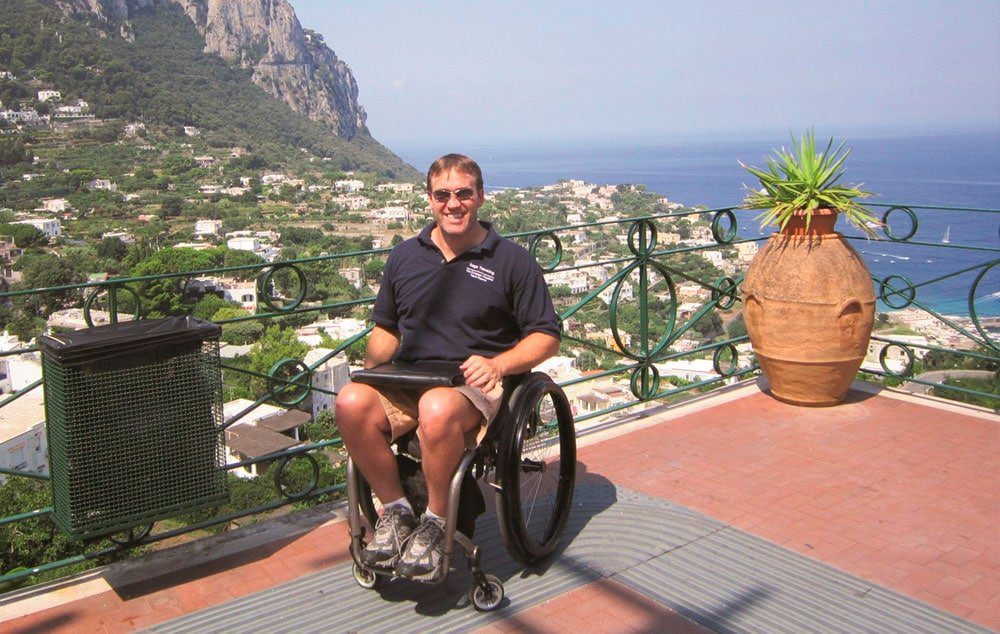About a fifth of Americans have some kind of disability, yet travel agents are not recognizing this demographic group as clients — sometimes, even, when they already are clients, said John Sage, president of Accessible Travel Solutions, a Houston-based tour company.
As a result, they are missing a potentially lucrative and large client base, he said.
“A large portion of disabled travelers are baby boomers who have the time and money for long, expensive vacations,” he said. “Consequently, they are very attractive to travel agents.”
Sage, who himself uses a wheelchair, left an engineering job in 2009 to start his travel company after finding he loved to travel Europe on his own but was having a hard time finding travel professionals who could help him plan his trips. Accessible Travel Solutions, which specializes in travel for the disabled and pays commission to agents, has expanded over the years to offer shore excursions, transfers to and from cruise ships, FIT packages and escorted tours.
Many agents, Sage has found, handle travel for the disabled whether they know it or not. Typically, it happens when agents handle a group, such as a destination wedding or family reunion. There may be a family member with bad knees who can’t climb stairs or someone who uses a walker or wheelchair. Fifty percent of senior citizens in the U.S. have a disability, so the numbers are large, and many of those who are disabled simply don’t travel because they think that they cannot, he said.
“Disabled people are skeptical of their accessibility needs being met,” Sage said. “Some don’t know what’s possible and don’t travel.”
Agents interested in serving this growing demographic can start by asking basic questions such as what the disabled traveler needs in terms of assistance and doing research, such as what suppliers can do for the disabled and what’s possible at the destination.
“What often happens is that you’ve got a multigeneration group traveling together, and grandma gets left on the ship because the agent doesn’t know to offer something else,” he said. “The agent should use this opportunity to provide extra value and build client loyalty.”
Sage said it is key for agents to identify a disabled member of a group early in the planning process. Cruise lines, for example, can accommodate disabled passengers, but they may have a limited number of wheelchair-accessible spots on shore excursions, and those spots fill up early. That’s also true of land accommodations, he said. “If you want to go to Rome and want to stay near the Pantheon there are hotels that can accommodate people in wheelchairs, but each has a maximum of two accessible rooms. This is a huge issue for disabled people. If you book early enough, there’s plenty of opportunity. But if you wait, there’s no room.”
The other problem is that in Europe’s centuries-old city centers, many of the older buildings don’t have accessible rooms. People with disabilities often end up having to stay in modern hotels on the outskirts of a city and then pay for expensive transportation in specially equipped vehicles to reach the center, Sage said.
Agents who do not specialize in disabled travel but find themselves occasionally handling arrangements for those in wheelchairs or with other accessibility issues should not automatically turn down the business.
“The agents who are really successful in this segment, and there are maybe only about two dozen of them in the U.S., have a decade or more of experience, and it’s usually because they have a child with a disability or a husband in a wheelchair,” he said. “Instead of going with the big suppliers they build a network of local suppliers who specialize in accessible travel.”
That’s where Sage’s services come in. “We help the average travel agent to become an accessible travel specialist.”
Source: Travel Weekly



